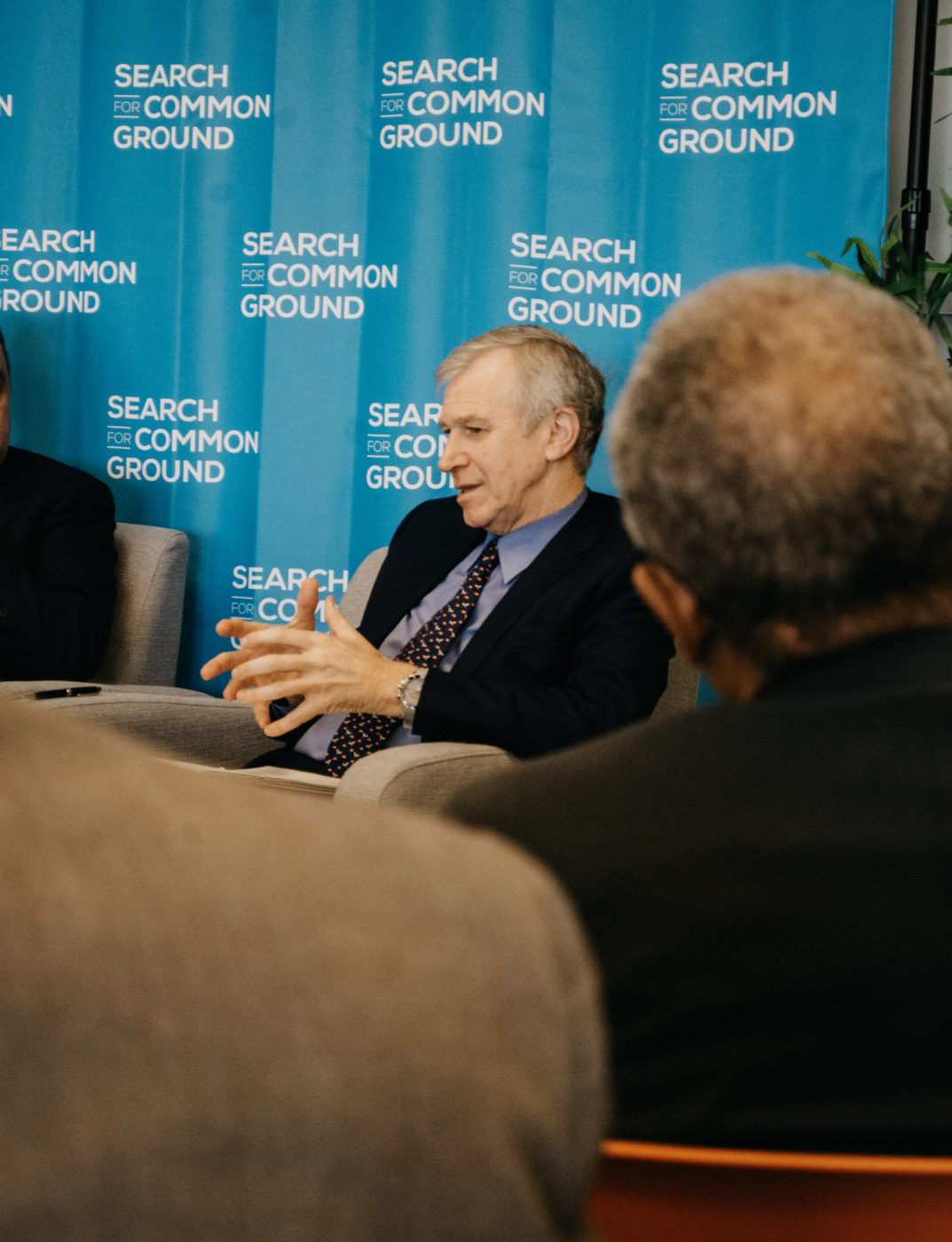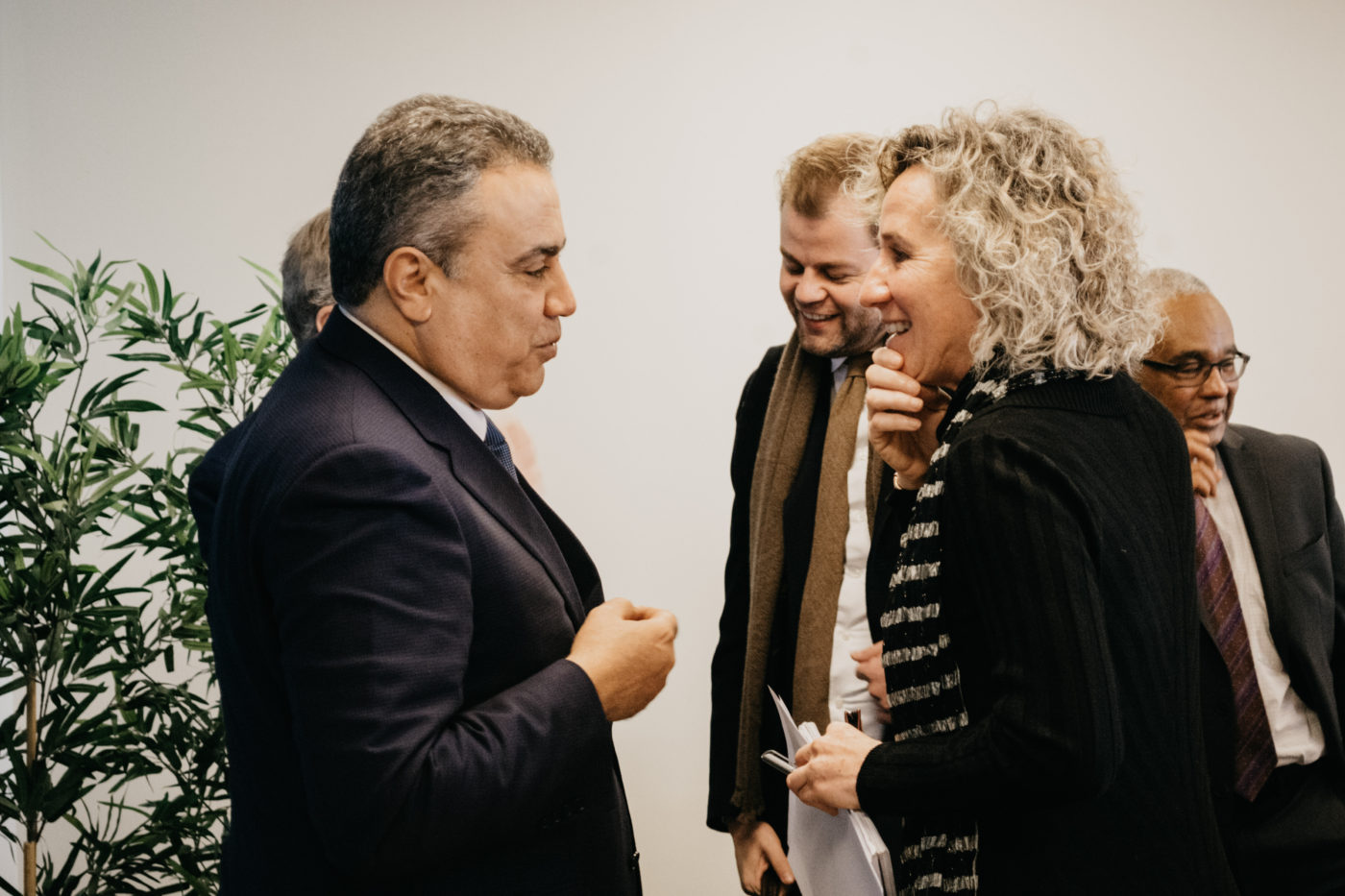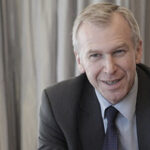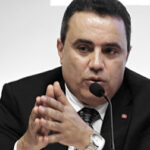Mehdi Jomaa, former Prime Minister of Tunisia, and Yves Leterme, former Prime Minister of Belgium, were keynote speakers at a Global Economic Governance Policy Dialogue organized jointly with the Stimson Center and Friedrich Ebert Stiftung at the World Bank in Washington DC from 18 to 20 November.
Speaking at the World Bank’s dialogue, an effort to formulate policy recommendations for multilateral reform, the World Leadership Alliance-Club de Madrid (WLA-CdM) Members shared their expertise on economic governance.
Leterme highlighted that the shift of gravity of the world economy is moving towards Africa and Asia, and asked “How can this be incorporated into any re-design of the multilateral economic governance system? If it is not, they may simply organize themselves.” The former PM of Belgium also expressed worry over how citizens perceive the legitimacy of economic governance institutions. Economic reforms, according to the former PM of Belgium, should be contextualized with dialogue and, ultimately, “develop a shared ownership of inclusive solutions”.

“Reforms are not just big steps but continuous. We are discussing the political costs of undertaking reforms but what are the costs of not reforming?”, asked PM Mehdi Jomaa, who also shared some lessons of the Tunisian Transition to democracy, of which he was a key figure. The former Prime Minister of the North African country, who pushed through important economic reforms while leading the government, recommended holding economic dialogues including social sectors.
WLA-CdM identified a set of recommendations as a result of the Policy Dialogue, including increased independence of the IMF, a better assessment of the social impact of the IMF’s policy prescriptions and incorporating the private sector as a more comprehensive partner in development.
The Global Economic Governance Policy Dialogue aims to contribute to the UN2020 process, United Nation’s effort to renew the multilateral system on occasion of the 75th anniversary. WLA-CdM has also just included renewing multilateralism in its programmatic strategy and has already held related activities like the Imperial Springs International Forum 2019 and a discussion with representatives of international organizations at UN’s Beijing office.
Building sustainable peace
The Policy Dialogue was followed by Navigating Political Uncertainty and Promoting Inclusive, Sustainable Peace through Shared Societies, an interview discussion in partnership with Search for Common Ground, where Senior Vice President of Programs Lena Slachmuijder questioned the leaders on their experiences and reflections of their time in office and lessons learned from their leadership experience on how to build sustainable peace and inclusive policy reforms.
Remarking on his home country, Prime Minister Jomaa shared “Our solution to the transition challenge in Tunisia was to find a balance of inclusion, consultation and efficiency”. Meanwhile, Prime Minister Leterme told the audience “During our crisis, the challenges went from balancing different linguistic groups to saving our welfare state, which we did with an inclusive focus.” By offering perspectives from different nations and backgrounds, WLA-CdM is able to offer a diverse set of policy recommendations to build Shared Societies.

Revolution is like the foam on deep water
Through a series of meetings in the US capital, Prime Ministers Jomaa and Leterme fostered engagement and partnership development.
During a meeting with Antoni Estevadeordal, Migration Initiative Coordinator at the Inter-American Development Bank, Prime Minister Leterme noted the importance of changing the political debate on migration as numbers increase, especially with regard to the ongoing Venezuela migration crisis in Latin America. The IDB continues to work towards changing the narratives of migration in the region.
A dialogue with Santiago Cabanas, Ambassador of Spain to the United States, together with Dirk Wouters, Ambassador of Belgium to the United States and Faycal Gouia, Ambassador of Tunisia to the United States, highlighted the need for WLA-CdM leadership to encourage positive messages of multilateralism from the US administration.
In conversation with Stavros Lambrinidis, EU Ambassador to the United States, about the challenges of promoting multilateralism, Prime Minister Jomaa emphasized that “crisis is an opportunity for reform but must produce results. Revolution is like the foam on deep water.”


